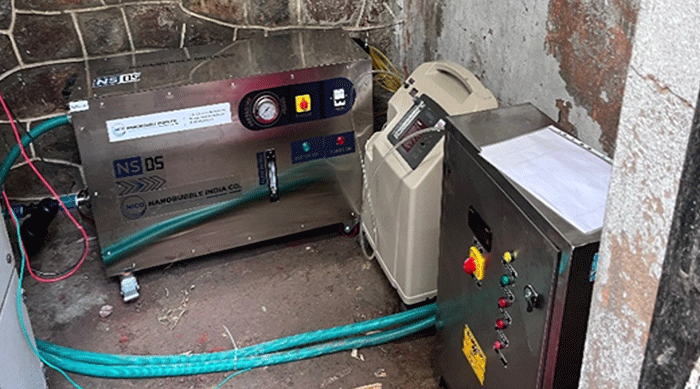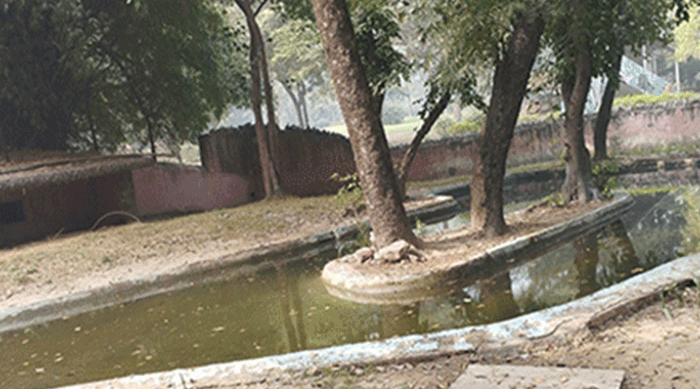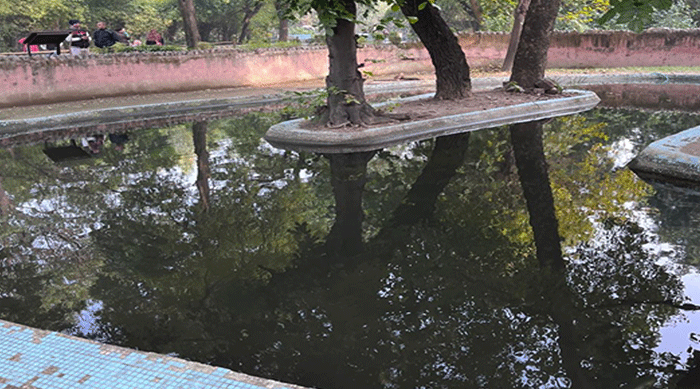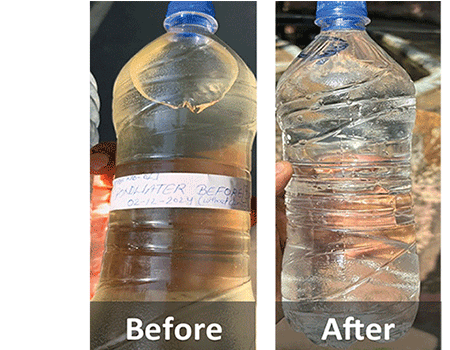
NATIONAL ZOOLOGICAL PARK (W/ Ministry of Environment | Delhi, India)
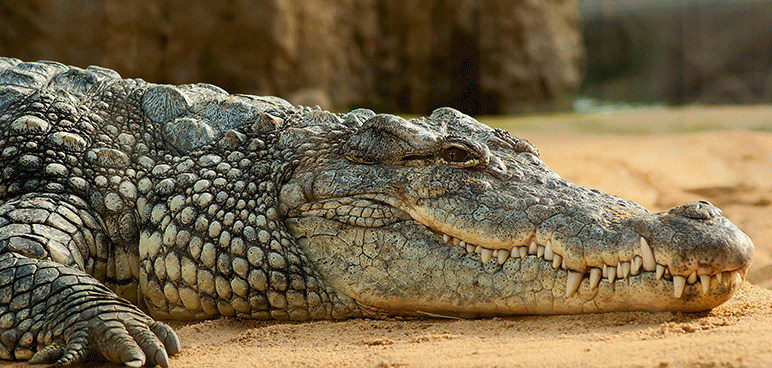

The management at Delhi Zoo faced persistent challenges in controlling excessive algal blooms and maintaining water quality across several ponds. Despite efforts to resolve these issues using conventional aeration systems and fountains, the results were ineffective in reducing algae or improving overall water quality.
NICO Nanobubble India Co. recommended the adoption of nanobubble technology to address the root causes of these problems and enhance water quality sustainably.
On December 2, 2024, NICO Nanobubble India Co. successfully installed its system at Pond No. 18 of the Delhi Zoo, home to Marsh Crocodiles. As shown in the accompanying figure, the pond’s surface, bottom, and sidewalls were heavily covered with algae prior to the installation.
On January 13, 2025, following the installation of the NICO Nanobubble system at Pond No. 18 on December 2, 2024, the key results of the experiment were as follows:
| Units | Pond Water (Before) (02.12.2024) | Pond Water (After)(13.01.2025) | |
|---|---|---|---|
| Total Suspended Solids (TSS) | Mg/L | 73 | 27 |
| Total Dissolved Solids (TDS) | Mg/L | 3042 | 2420 |
| BOD | Mg/L | 30 | 7 |
| COD | Mg/L | 260 | 60 |
| E-Coli | MPN/100ml | 10 | Absent |
| Dissolved Oxygen (DO) | PPM | 1.1 | 30.86 |
